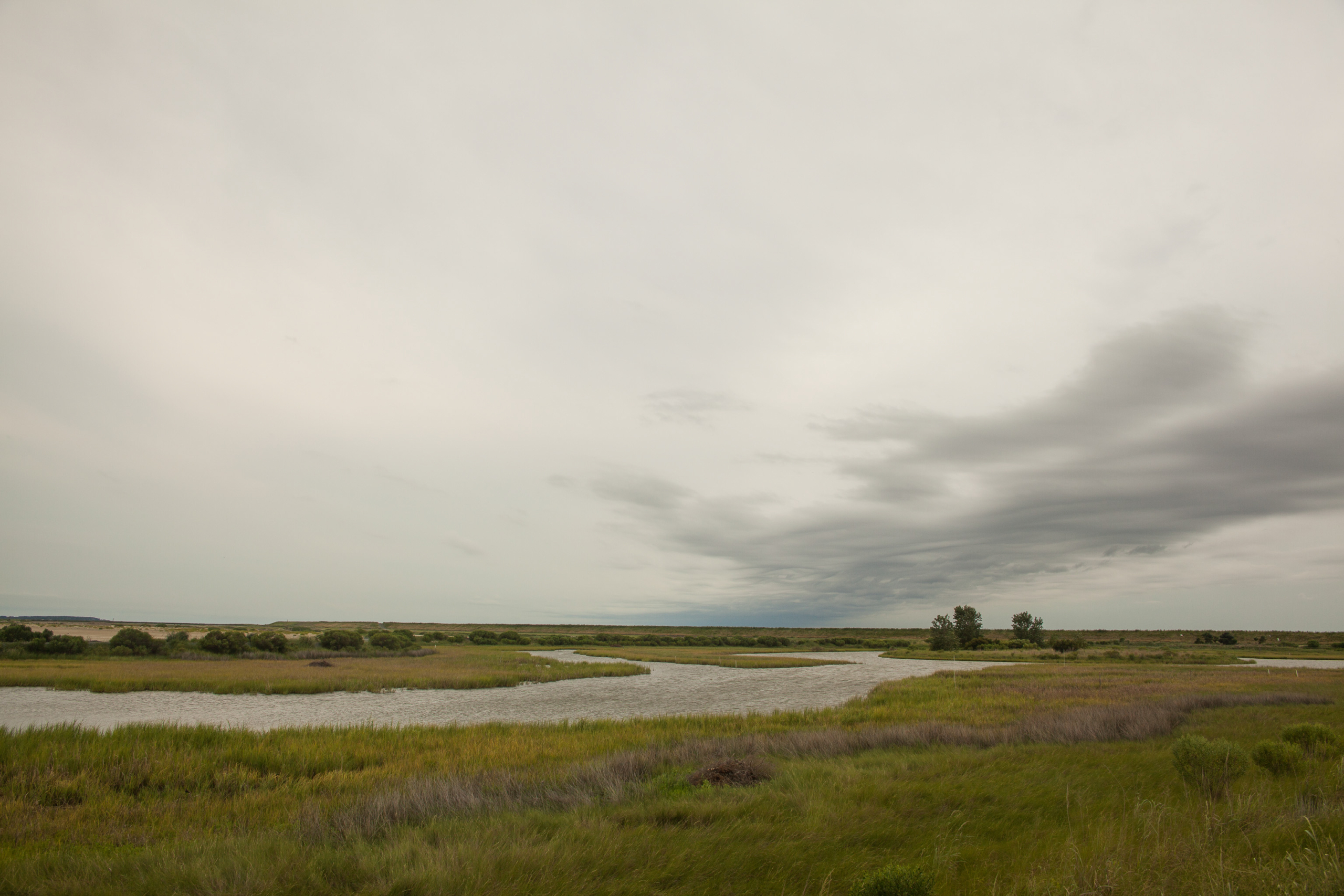Improve the Understanding and Coordination of Science Activities for PFAS in the Chesapeake Watershed
May 17, 2022 - May 18, 2022Annapolis, MD

This workshop convened in-person on May 17th and 18th at the Historic Inns of Annapolis.
Final Workshop Report: Improving Understanding and Coordination of Science Activities for Per- and Polyfluoroalkyl Substances (PFAS) in the Chesapeake Bay Watershed
Per- and polyfluoroalkyl Substances compounds (PFAS) have been manufactured and used in a variety of industries in the United States since the 1940s. These compounds are persistent in the environment and have been shown to have adverse human and ecological health effects. While jurisdictions have begun some studies on PFAS in drinking water, little is known about PFAS in the Chesapeake ecosystem. There is the possibility for widespread occurrence, biomagnification potential through the food web, and risk to fish, wildlife, and human health. There is an urgent need for better standardization, unified approaches and sharing of knowledge to allow close cooperation among and between the various research institutions and management agencies represented in the Bay watershed.
Workshop Objectives:
This workshop gathered state, federal, and academic partners to better understand the state of the science and improve science coordination for these objectives:
- Summarize the current understanding and analyses of the sources, occurrence, and fate of PFAS. The focus was on the unique Chesapeake Bay ecosystem settings, such as freshwaters to tidal waters, differing land uses, and the affecting resources in each.
- Identify current efforts and approaches to inform the potential effects on fish and wildlife, and their consumption. Selected fish and wildlife species, including those common for human consumption in the Chesapeake watershed, were chosen for focus in the workshop.
- Consider study designs, and comparable sampling and analysis methods, for a more coordinated PFAS science effort. Recommendations were developed to have a more coordinated science effort to address objectives 1 and 2; and strive to have an integrated and cost-effective approach for monitoring, modeling, and innovative methods across the watershed.
Workshop Inventory Request: As part of the lead-up to the May workshop, the workshop Steering Committee designed an inventory on PFAS. The purpose of this inventory was to identify current efforts and approaches in order to inform the exposure to and potential effect of PFAS on fish and wildlife, and human health within the Chesapeake Bay region. The information provided served as pre-workshop materials designed to better understand what data are being collected and the methods being used to better align and compare PFAS information throughout the Watershed.
This inventory is now closed.
Chesapeake Research Consortium (CRC) Roundtable: In December 2021, the PFAS workshop Steering Committee hosted the CRC Roundtable on PFAS. The Roundtable focused on what we currently know about per- and polyfluoroalkyl substances (PFAS), what we need to know, and how the Bay states and EPA are tackling the issue. Kelly Smalling, a research hydrologist with the United States Geological Survey (USGS), and Scott Phillips, Chesapeake Bay Coordinator with the USGS, moderated the webinar with three expert speakers. The three speakers, Amy Williams, Pennsylvania Department of Environmental Protection’s Bureau of Clean Water; Lee Currey, Maryland Department of the Environment; and Betsy Behl, Environmental Protection Agency (EPA), provided their unique perspectives on PFAS and briefly summarized some ongoing efforts focusing on what they’ve learned and what’s next.
- Final Workshop Agenda
- Pre-workshop Packet
- Inventory Summary
- Reference List
Steering Committee:
- Greg Allen, US EPA, Chair of the CBP Toxic Contaminant Workgroup
- Lee Blaney, UMBC, STAC Member
- Lara Fowler, PSU, STAC Member
- Tom Ihde, Morgan State University, STAC member
- Denise Keehner, MDE, LinkedIn
- Michelle Lorah*, USGS, LinkedIn
- Emily Majcher, USGS, leadership on the Toxic Contaminant Research Outcome, LinkedIn
- George Onyullo, DOEE, LinkedIn
- Scott Phillips*, USGS
- Kelly Smalling*, USGS
*=Co-Chair
Workshop Presentations:
Session 1: Current Understanding & Efforts to Address PFAS
- Assessing the Ecological Risks of PFAS: Overview of an International Workshop – Jeff Steevens (USGS)
- Summary of Current Understanding & Overview of Inventory Response – Michelle Lorah (USGS)
- Quantifying the Risk Panel: Investigations into Other Watersheds
This panel examined what investigations in other watersheds have discovered about PFAS and its ecological burden on fish and wildlife. A recording of the panel, including a short Q&A session, can be found here: Quantifying the Panel Recording
Panelists included:
- Great Lakes – Brian Lenell (EPA Region 5)
- Delaware Basin – Ron MacGillivray (Delaware River Basin Commission)
- PFAS Occurrence and Concentrations in Puget Sound Aquatic Life – Louisa Harding (WA Dept of Fish and Wildlife)
Session 2: Considerations or Establishing PFAS Thresholds: Consumption Advisories & Identifying Potential Effects on Aquatic Organisms
- Components to Develop Chesapeake Fish Consumption Advisories
- PFAS and NJ Fish Consumption Advisories – Sandra Goodrow (NJDEP)
- An Integrative Modeling Approach to Support Consumption Advisories – Tom Ihde (Morgan State), Lee Blaney (UMBC)
- Tissue Sampling in Maryland – Amy Laliberte (MDE)
- Studies of Potential Toxic Effects on Aquatic Organisms
- Fish Plasma – Heather Walsh (USGS)
- PFAS Toxicity to Aquatic Animals – Jamie Suski (EA Engineering, Science and Technology, Inc.)
- Overview of SERDP PFAS Ecotox Projects – Hunter Anderson (US Air Force)
- Summary of NOAA/NCCOS Research on PFAS – Marie DeLorenzo (NOAA)
Session 3: Considerations for Developing a Coordinated Monitoring Effort for PFAS in the Chesapeake Bay: Sampling & Analysis
- Summarize Study Design & Method Information
- Overview of Inventory— Michelle Lorah (USGS)
- Common Approaches Being Adopted
- Tissue Methods – Anna Robuck (Mt Sinai School of Medicine)
- Water Sampling and Analysis – Joe Duris (USGS)
Session 4: Develop Recommendations to Address Science Gaps for a More Coordinated Research & Monitoring Effort for PFAS in the Chesapeake
- Small Group Instruction – Kelly Smalling (USGS)
